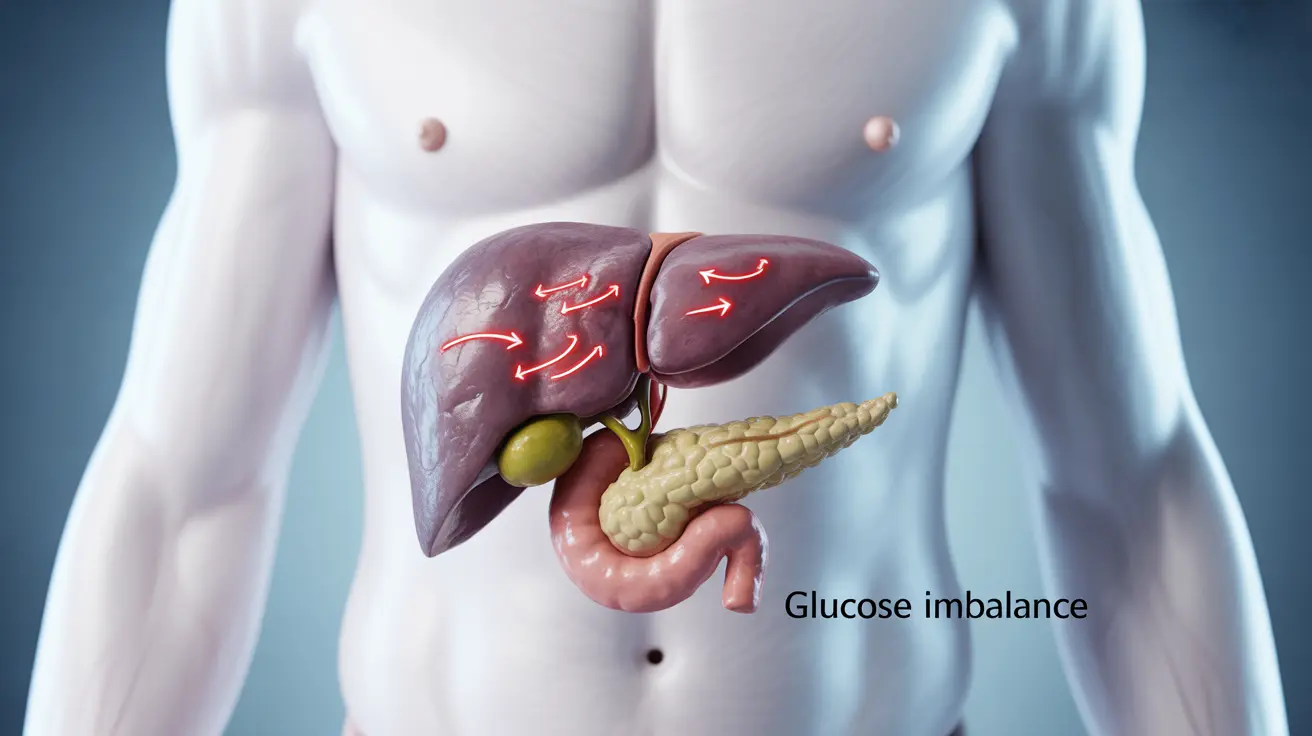The relationship between fatty liver disease and diabetes is complex and significant, with each condition potentially impacting the other's management and progression. Understanding how these conditions interact and implementing effective management strategies is crucial for optimal health outcomes.
For individuals living with both conditions, a coordinated approach to treatment and lifestyle modifications can help improve both blood sugar control and liver health. This comprehensive guide explores the connection between these conditions and provides evidence-based strategies for managing them effectively.
Understanding the Connection Between Fatty Liver Disease and Diabetes
Fatty liver disease and type 2 diabetes share several common risk factors and mechanisms. When fat accumulates in liver cells, it can interfere with the liver's ability to regulate blood sugar levels, potentially worsening diabetes control. Conversely, poor blood sugar control can contribute to increased fat accumulation in the liver.
Impact on Blood Sugar Control
The liver plays a crucial role in maintaining stable blood sugar levels. When fatty liver disease develops, it can impair the liver's ability to:
- Store and release glucose effectively
- Respond properly to insulin
- Process and metabolize carbohydrates efficiently
These changes can make diabetes management more challenging and may require adjustments to medication dosages or treatment approaches.
Essential Lifestyle Modifications
Diet and Nutrition
A balanced, nutrient-rich diet is fundamental for managing both conditions. Key dietary recommendations include:
- Limiting processed foods and added sugars
- Choosing complex carbohydrates over simple carbohydrates
- Incorporating plenty of fiber-rich vegetables
- Including lean proteins and healthy fats
- Avoiding alcohol consumption
Physical Activity
Regular exercise plays a vital role in managing both conditions by:
- Improving insulin sensitivity
- Reducing liver fat accumulation
- Supporting healthy weight management
- Enhancing overall metabolic health
Weight Management Strategies
Achieving and maintaining a healthy weight is crucial for improving both conditions. Even a modest weight loss of 5-10% can significantly improve liver health and blood sugar control. Sustainable weight loss should be approached through:
- Portion control
- Regular physical activity
- Behavioral modifications
- Support from healthcare providers
Medications and Treatment Approaches
Several diabetes medications may have beneficial effects on fatty liver disease. These include:
- Metformin
- GLP-1 receptor agonists
- SGLT2 inhibitors
- Pioglitazone
However, medication choices should always be discussed with healthcare providers, as individual responses and needs can vary significantly.
Monitoring and Prevention
Regular monitoring of both conditions is essential for optimal management. This includes:
- Regular blood sugar monitoring
- Periodic liver function tests
- Regular medical check-ups
- Lifestyle adherence tracking
Frequently Asked Questions
How does fatty liver disease affect blood sugar control in people with type 2 diabetes? Fatty liver disease can impair the liver's ability to process and store glucose, making blood sugar control more difficult. It can also increase insulin resistance, requiring more aggressive diabetes management strategies.
What lifestyle changes can help manage both fatty liver disease and diabetes effectively? Key lifestyle changes include maintaining a healthy diet low in processed foods and sugar, regular physical activity, weight management, limiting alcohol consumption, and getting adequate sleep.
Are there specific diabetes medications that improve fatty liver disease symptoms? Yes, certain diabetes medications like metformin, GLP-1 receptor agonists, and SGLT2 inhibitors have shown potential benefits for fatty liver disease. However, medication choices should be individualized and discussed with healthcare providers.
What are the common signs and symptoms of fatty liver disease in individuals with diabetes? Fatty liver disease often has no obvious symptoms in its early stages. When symptoms do appear, they may include fatigue, abdominal pain or discomfort, and enlarged liver. Regular screening is important for early detection.
How does losing weight impact the progression of fatty liver disease in diabetic patients? Weight loss can significantly improve both conditions. Losing even 5-10% of body weight can reduce liver fat accumulation, improve insulin sensitivity, and help better manage blood sugar levels.




